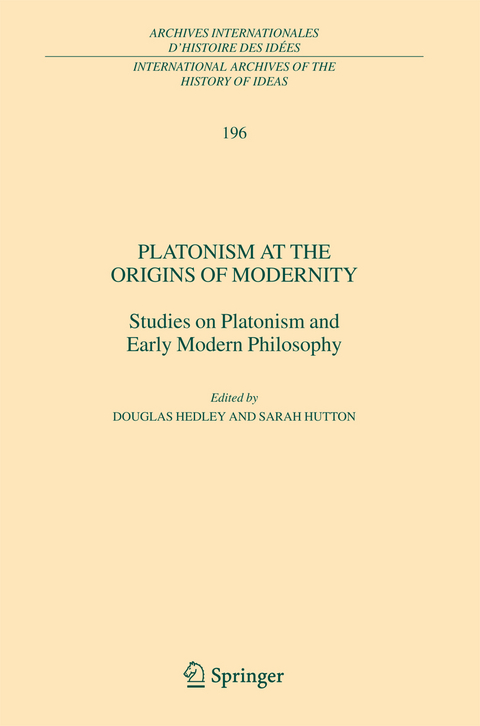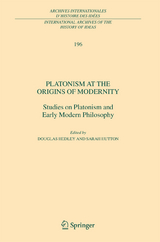Platonism at the Origins of Modernity
Springer-Verlag New York Inc.
978-1-4020-6406-7 (ISBN)
Nicholas of Cusa (1401–1464): Platonism at the Dawn of Modernity.- At Variance: Marsilio Ficino, Platonism and Heresy.- Going Naked into the Shrine: Herbert, Plotinus and the Constructive Metaphor.- Comenius, Light Metaphysics and Educational Reform.- Robert Fludd’s Kabbalistic Cosmos.- Reconciling Theory and Fact: The Problem of ‘Other Faiths’ in Lord Herbert and the Cambridge Platonists.- Trinity, Community and Love: Cudworth’s Platonism and the Idea of God.- Chaos and Order in Cudworth’s Thought.- Cudworth, Prior and Passmore on the Autonomy of Ethics.- Substituting Aristotle: Platonic Themes in Dutch Cartesianism.- Soul, Body and World: Plato’s Timaeus and Descartes’ Meditations.- Locke, Plato and Platonism.- Reflections on Locke’s Platonism.- The Platonism at the Core of Leibniz’s Philosophy.- Leibniz and Berkeley: Platonic Metaphysics and ‘The Mechanical Philosophy’.- Which Platonism for Which Modernity? A Note on Shaftesbury’s Socratic Sea-Cards.- Platonism, Aesthetics and the Sublime at the Origins of Modernity.
| Erscheint lt. Verlag | 25.1.2008 |
|---|---|
| Reihe/Serie | International Archives of the History of Ideas / Archives internationales d'histoire des idées ; 196 |
| Zusatzinfo | X, 296 p. |
| Verlagsort | New York, NY |
| Sprache | englisch |
| Maße | 155 x 235 mm |
| Themenwelt | Geisteswissenschaften ► Philosophie ► Philosophie Altertum / Antike |
| ISBN-10 | 1-4020-6406-3 / 1402064063 |
| ISBN-13 | 978-1-4020-6406-7 / 9781402064067 |
| Zustand | Neuware |
| Haben Sie eine Frage zum Produkt? |
aus dem Bereich




